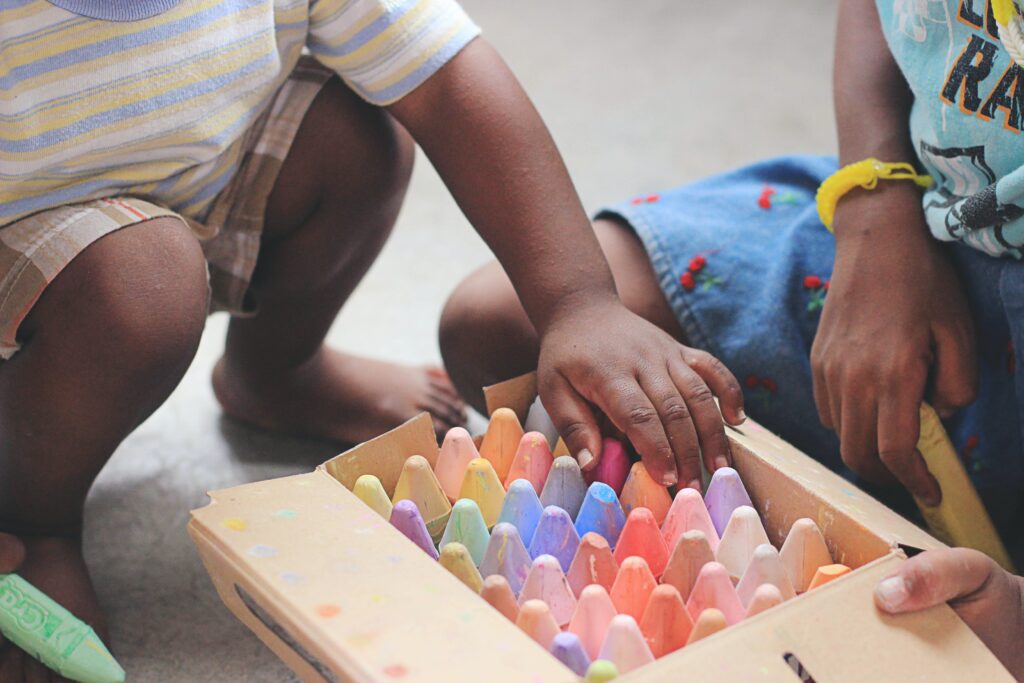As children we’re taught life lessons by the adults around us. These lessons often involve or impact on our mental health in some way. I’ve been thinking about what we teach children and the behaviours and habits we wish to encourage. And have realised that whilst they’re fostered in childhood, presumably to help us be good people. We so often lose these lessons in adulthood or find that they are no longer valued as they once were. So, what mental health messages from childhood do we forget as adults?
For How to Teach Children about Mental Health read here.
#1 Self Sacrifice

I wouldn’t want my daughter to sacrifice her own needs. Ever. Yes, I want her to contribute to society and look after others. Demonstrate kindness and empathy. But there is certainly a balance we can achieve which allows us to do this without jeopardizing ourselves. I would never expect my child to wait for food, a hug, attention, water or her nappy changed. There is no part of us which expects children to make sacrifices for those around them. Rightly so, this is childhood neglect. But why do we accept this as adults? So many adults I know make countless sacrifices on a daily basis. Whether making them at work, home or for a myriad of other caring responsibilities. We put even our basic needs lasts to put other people’s needs first. This is neither sustainable or healthy. Why don’t we continue to prioritize our needs as adults?
For Why Self Care is Everyone’s Responsibility read here.
For How to Role Model Parent read here.
#2 Valuing Ourselves
Closely linked to the above. When we don’t meet our own most basic needs; what does that say for how we value ourselves? If we prioritize other people above and beyond ourselves we’ve moved out of the territory of simply being a nice or good person. The consistent sacrifice of who we are and want to be for the sake of others can chip away at our self-esteem. To the point that we may not prioritize our needs because we do not value ourselves. Again, as parents and responsible adults, it is our job to instil confidence in children. To build them up and teach them the resilience and self-love to get them through the hardest times. Hopefully all children will experience childhood in this way. So, why do we settle for less when we become responsible for seeing and investing in our own value?
For A Guide to Accepting Compliments (& Why It’s Not Easy) read here.
#3 Kindness

I believe that children inherently understand kindness. My child has started to pass me things. Usually items I do not want. But she is showing her care for me. She is sharing with me. This is the seed of kindness which I hope will only grow. And I will nurture this within her. Kindness and empathy are vital for the world we live in. We all need it. And yet, whether it is kindness to ourselves or to others. Some adults don’t remember this lesson.
Thankfully there are many kind and loving people in the world. The type who would stop to check you are okay or help you out if they see you in the street. But what about those who aren’t kind? Were they never taught? Or has the way society is constructed taught us to de-prioritize kindness at best, and view it as a weakness at worst?
For Everyday Kindness read here.
#4 Don’t Express Emotions
As adults we’re meant to have ‘it’ all together. Whatever ‘it’ is. And to do so we must show no weakness. And what is weakness? Often a variety of emotions which aren’t deemed socially acceptable or that are viewed as a sign of not coping. Because as adults it is our job to cope. So, we store those thoughts and feelings which would betray our lack of infallibility. At face value this makes sense. We want children to feel safe and that they can rely on us. Therefore, showing them we are capable and can be relied on is vital. Likewise, we need other people to be able to rely on us too or trust us whether professionally and personally.
But what are the downsides? We teach children to emotionally regulate. To feel a range of emotions and learn to identify them and manage them. So, why do we teach children one thing and do another ourselves? When do we unlearn these messages and why? Whilst I don’t advocate for sharing all thoughts and feelings with a child. There is a place for explaining our feelings and how we managed them to our kids in an accessible and age-appropriate way. It is important for them to know a range of feelings is normal. And the best way for them to learn to mange their own is to see and hear how we manage ours. So, why don’t we do more of this?
What are your thoughts on the messages from childhood that we lose as adults? What would you add to the list? Do you agree with the above? As always, let us know below!

This is a brilliant post. It is a good reminder of how we grew up and how far from good teaching we may have gone.
This is such an interesting read! I definitely wish all adults had the same kindness children do, and as someone incredibly closed off, your point about expressing emotions really hit home. Thank you so much for sharing x